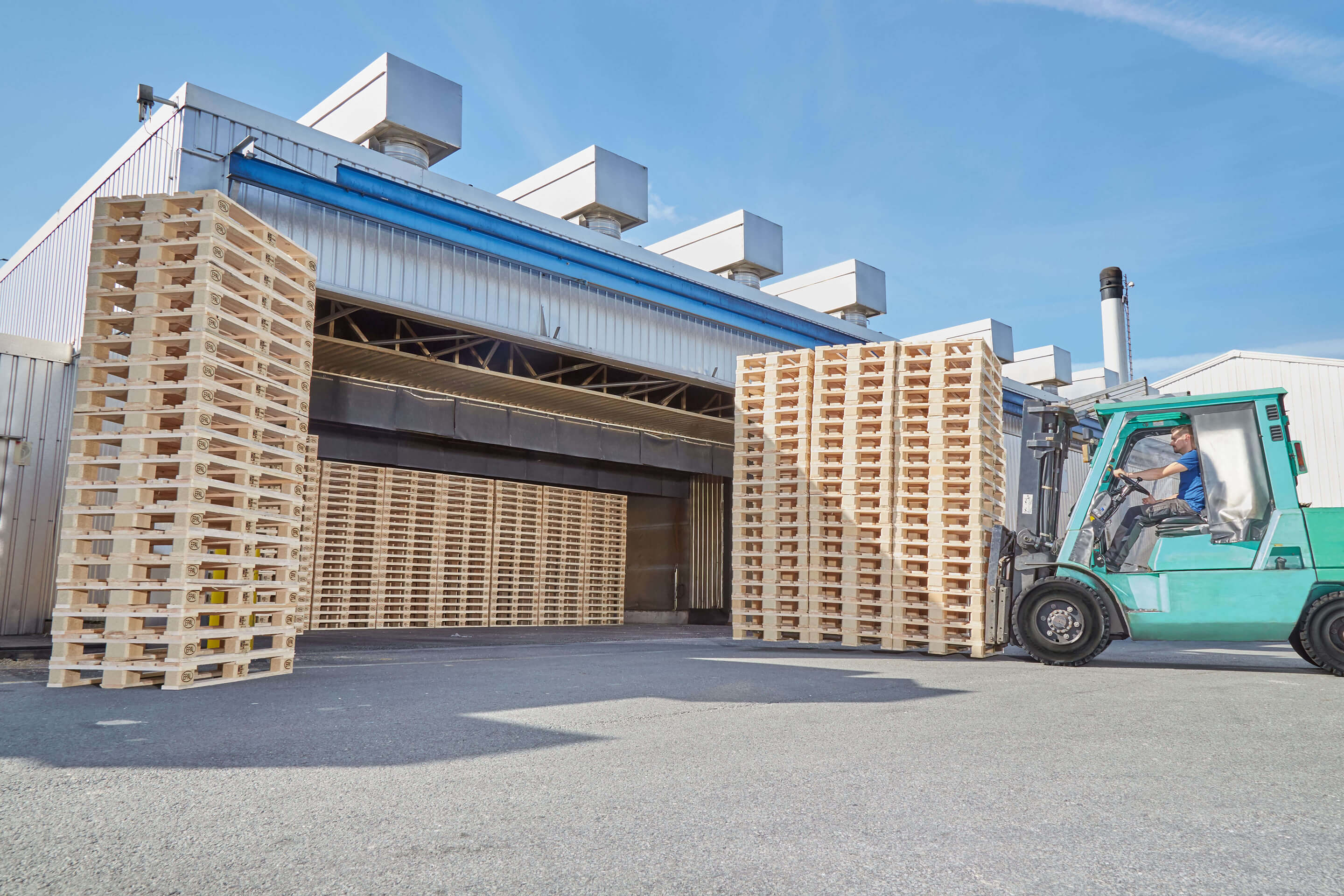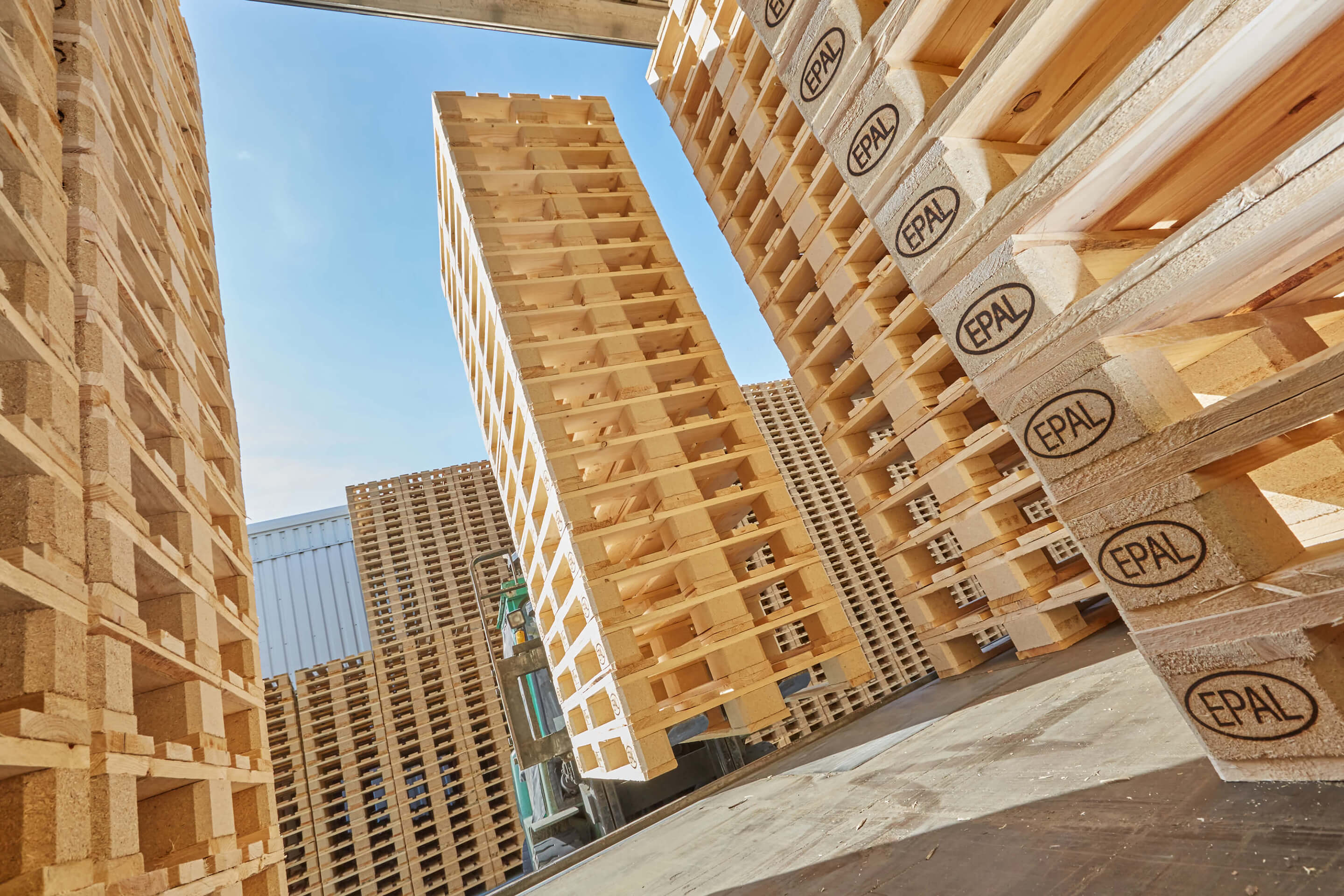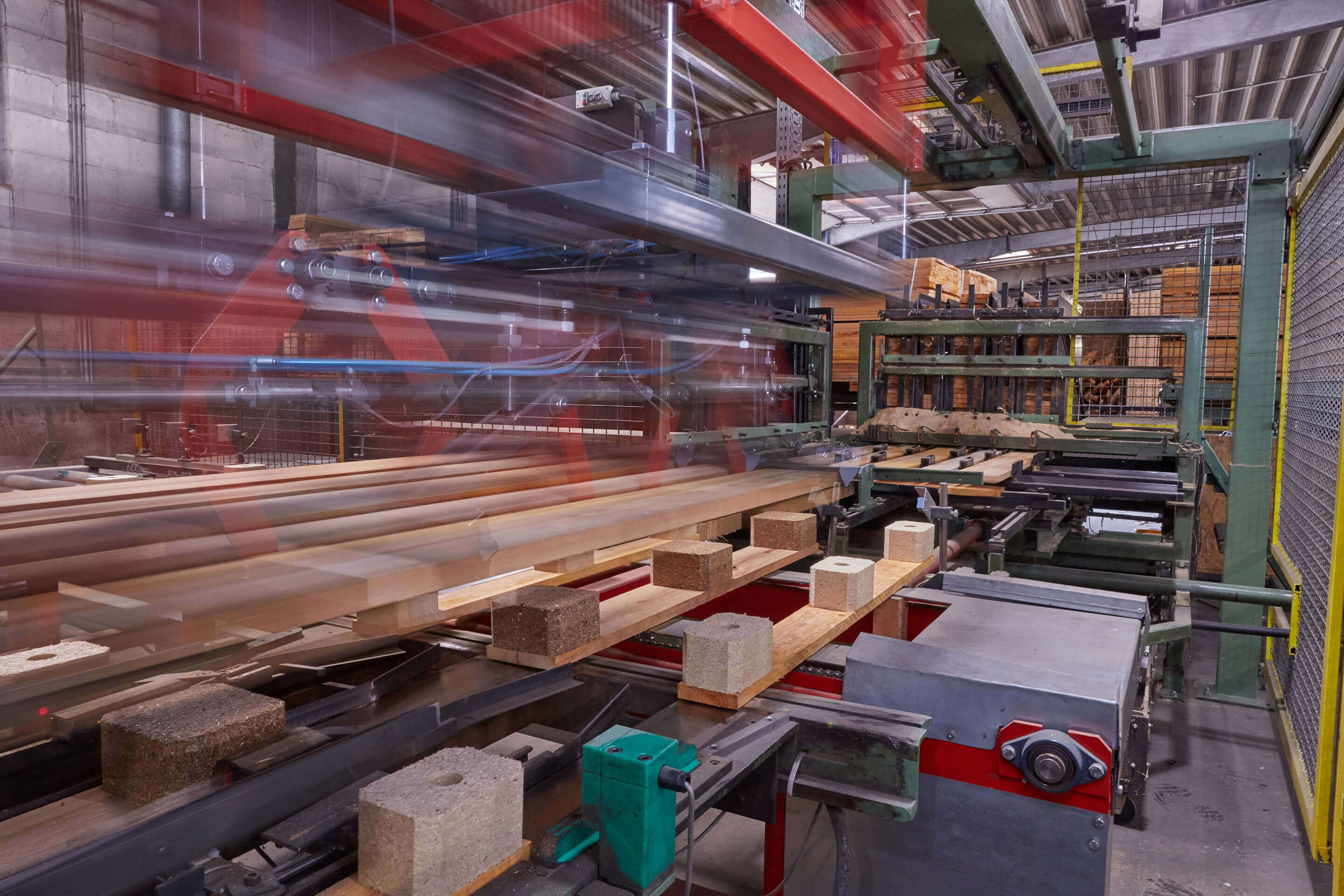FAQ
Getting an EPAL licensee
We are pleased that you have decided to apply for an EPAL licence and wish to be a member in the world’s largest open pool system for load carriers.
To make this as easy as possible for you, we have summarised the following frequently asked questions and answers for you.
How do I get an EPAL licence?
On our website www.epal-pallets.org under “Becoming a licensee” in the Licensees’ Area, you are able to apply for a licence or send us an informal email to: info@epal-pallets.org.
Your contact will get in touch with you promptly and provide you with the licence application as well as other documents.
You can find your contact at any time on our website www.epal-pallets.org/eu-en/epal- worldwide
Who is my contact?
At present, EPAL is represented in 14 countries by National Committees. In another 4 countries EPAL has representatives acting in its interests.
You can find the contact on our website www.epal-pallets.org/eu-en/epal-worldwide
We are happy to help you here in Düsseldorf as well. Would you like to write to us? Please use the
email address: info@epal-pallets.org. Your contact will get in touch soon.
What are the costs for the EPAL licence application?
The EPAL processing costs as well as the costs for the evaluation visit come to €1,150.00. Once payment has been received, our competent inspection company will soon be in touch to arrange a date.
The costs are made up of the processing fee of €550.00 and the evaluation visit fee of €600.00.
How long does the application procedure take?
The licensing process should not exceed 3 months after application.
EPAL allows the applicant a grace period of a further 3 months. This means that the longest the licensing procedure can take is 6 months. Once this period has passed, you would have to submit a new application.
Which documents do I need for the licence application?
We need the following documents from you:
- the signed licence application
- a copy of your ID card or other proof of identity
- a copy of your business registration document
- a site plan of the business operation
What happens during the inspection by the inspection company?
The inspectors from our inspection companies strictly work according to the common specifications of the EPAL Technical Regulations. Regardless of country and inspection company, compliance with the production and/or repair specifications in the Technical Regulations is examined.
The aim of monitoring the compliance with our quality requirements during the production and repair of EPAL load carriers is to ensure consistent quality.
The inspector compiles an inspection report for each inspection, in which compliance with provisions, batch size, date of inspection and other points are documented.
A negative inspection outcome is given for exceeding the deviation tolerance.
When can I start producing/repairing/ trading in EPAL load carriers?
Immediately after a (positive) evaluation visit you will receive from us your trademark licensing agreement in duplicate (please sign and send back both copies to us).
We will then send you a countersigned copy for your records as well as your Licence Certificate and your login details for the Licensees’ Area on our website www.epal-pallets.org.
From this point on you can produce/repair the respective EPAL load carriers.
Repair / production is only permitted once you have received the Licence Certificate and the means of identification marking.
Where can I order EPAL control staples?
Immediately after being issued a licence as a producer of EPAL load carriers, you do not yet need your own control staples. Once you have produced the number of pallets given in the EPAL Technical Regulations, please let us know via info@epal-pallets.org. The competent inspection company will get in touch promptly to arrange a date with you to inspect the lot you have produced (chargeable inspection).
If your inspection has a positive outcome, our inspection company will provide you with black EPAL control staples corresponding to the number of pallets in the test lot presented.
After 6 months you may apply for Level 2 approval (self-monitoring), provided that you can demonstrate continuous production which complies to the standards, and the checks by our inspection company in this time show no serious faults.
From now on, please order yellow EPAL control staples in good time from us (info@epal-pallets.org) to prevent delays in your production.
Upgrade level 1 to 2 - information, download from this link
Where can I order EPAL repair marking nails?
You can find all the approved manufacturers of repair marking nails on our website in the Licensees’ Area www.epal-pallets.org in the current versions of the EPAL Directories.
Please allow enough delivery time when ordering repair marking nails to prevent delays in your repairs.
When can I order EPAL repair marking nails?
You need to order the repair marking nails as soon as your evaluation visit has had a positive outcome.
Where can I order control seals or repair control seals for EPAL Box pallets?
Please order control seals and repair control seals for Box pallets promptly via info@epal-pallets.org. Please allow enough delivery time when ordering control seals to prevent bottlenecks in your production / repairs.
When can I start production / repairs?
Once you have been licensed you can start production. You can deliver the pallets produced once they have had a positive inspection and you have received and driven in the relevant control staples. Once you have been licensed and immediately after receipt of the repair marking nails or EPAL staples, you can start to repair EPAL pallets and deliver these repaired pallets.
What is a negative inspection and what are the consequences of a negative inspection?
A negative inspection is when the inspector identifies faults on the pallets which deviate from the specifications in the Technical Regulations. A negative inspection is also given if you refuse or obstruct an inspection. Depending on the type and severity of the deviation, the consequence of a negative inspection can be a “reminder” or the initiation of a “sanctions proceedings”.
A sanctions proceedings is a contract violation proceedings in which documents are provided to the EPAL Board to decide on the type of contractual penalty or the amount of a fine.
Depending on the severity of the infringement, the EPAL Board can make the decisions to impose the following contractual penalties:
- a fine of at least €500.00 up to a maximum of €50,000.00 to be paid to EPAL
withdrawal of the right to use the “EPAL in oval” trademark for a duration of 3 months or
permanently
- additional inspections to be paid by the licensee
- withdrawal of the licence.
Production or repair without a valid EPAL licence
EPAL reserves the right to take legal action against infringements: of the Statutes, the decisions taken by the EPAL bodies, the provisions of the EPAL Technical Regulations or against the provisions of the Licensing Agreement.
Suppliers of work materials
Where can I order wood?
Can I also order wood from abroad?
Where can I order a nail gun?
Do tools have to be ordered from a specific manufacturer?
EPAL is often asked these and similar questions. Please understand that EPAL cannot give recommendations – all suppliers must have equal opportunities.
You can find all the approved suppliers on the website www.epal-pallets.org in the Licensees’ Area.
Do I have to find my own customers?
EPAL undertakes valuable communications work and lobbying in order to strengthen the system in the long term and develop it further. EPAL also optimises available products in close cooperation with market players and develops new solutions.
EPAL is independent and obliged to maintain neutrality to all licensees. For this reason, EPAL never favours licensees nor passes on any licensee data to third parties for advertising purposes.
EPAL often receives telephone enquiries on suppliers / producers of EPAL load carriers. In such cases, EPAL always refers to the licensee search on the website www.epal-pallet.org / licensee search, to give all EPAL licensees the same opportunities.
ISPM 15 registration
ISPM 15 stands for International Standards for Phytosanitary Measures for wood packaging in the international movement of goods. In 2002 the IPPC (International Plant Protection Convention), a subsidiary organisation of the FAO (the UN’s Food and Agricultural Organisation) agreed on phytosanitary measures for wood packaging to protect native forests from pests and to standardise national import regulations.
In accordance with the Technical Regulations, since 2010 all EPAL-licensed production and repair operations are obliged to comply with the ISPM 15 Standard for EPAL pallets.
Compliance with ISPM 15 is achieved by heat treating EPAL pallets in drying chambers (HEAT TREATMENT). The thickest cross section of the wood must reach a core temperature of at least 56°C and maintain this for at least 30 minutes so that all pests are eliminated.
Compliance with the ISPM 15 standard is demonstrated with the IPPC marking on the central blocks of all EPAL pallets.
VAT number / tax number
Why do I need a valid VAT number and what happens if my VAT number is wrong?
Your VAT number is checked via the tax authorities’ acceptance tool before an invoice is raised. If the VAT number is wrong, EPAL receives a message immediately and is obliged to raise the relevant invoice with VAT.
VAT identification number (VAT ID No)
Within the European Union, the VAT identification number is for intra-community goods and services transactions for VAT purposes.
We will check the validity of your VAT identification number via the European Commission’s VAT information exchange system.



